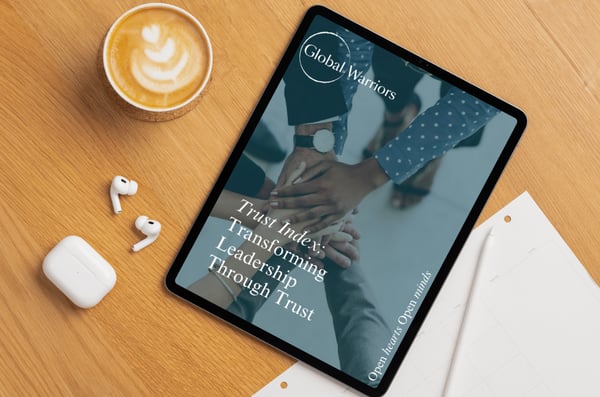When does the ‘new normal’ just become ‘normal’? It’s around a year now that we’ve been living with the impact of the coronavirus pandemic and, for pretty much all of us, it has meant a huge shift in how we live. It’s forced us to re-imagine how we stay in relationship with the people we care about. It’s shrunk our worlds and invited us to re-assess the value of what is directly around us.
And – for virtually all of those fortunate enough to work in industries and roles that allow us to do so – it has meant a shift from going to the office every day to exclusively working from home.
Opportunity and risk
There’s no doubt that there is an opportunity here – to dismantle some of the walls that have kept the different parts of our lives in their little compartments, that lend themselves to the unhelpful story about ‘work-life balance’ (a phrase that seems to imply that there should be equal weight given to your work and everything else in your life). At best the integration of our work and domestic / personal lives could mean that we can finally be seen as whole human beings – human beings who have roles and responsibilities at work, but who also exist outside of that context.
But there are risks with this way of living as well. When the walls to those compartments come tumbling down what remains? A lovely open-plan living space with easy movement between different areas? Or a mess of competing responsibilities and conflicting roles?
If we are being honest, the most common experience that we’ve heard from the people we work with is that – while there is gratitude for having jobs to go to, and for the opportunity to spend more time at home – the predominant mood is one of tiredness and fatigue. Tiredness from bouncing from one context to the next, from one role to another. The fatigue of trying to make up new rules of working and living on the fly.
The truth is that many of us are approaching – or past – the point of overwhelm, the different parts of our lives crashing together, leaving us feeling drained, perpetually stretched, and like we are failing to bring our best to any of them.
‘Role whiplash’
We’ve spoken to many people (some among the Global Warriors team!) who have described a kind of ‘whiplash’ effect of constantly moving between contexts. From making breakfast for the kids one minute to hosting a meeting on Webex the next. From having a tense conversation with a partner to suddenly having to put on a ‘professional’ face and host a workshop or seminar. From a challenging conversation with a leader or team member to reading a bedtime story to a child who wonders where you’ve been all day.
In a way one of the biggest opportunities of this new reality is the invitation to begin to interrogate some of the assumptions and stories that have developed in our work and home lives.
Whose idea of ‘professional’?
For instance, this thing about showing up in a ‘professional’ manner in a work interaction – well, what does that mean? When most of us think of the word ‘professional’ images of suits and ties come to mind; well-chosen words and slick PowerPoint presentations; an image of unflappability and composure. Not that there is anything wrong with any of these things, but should these be the indicators of ‘professionalism’ in the world we now inhabit? Should they ever have been?
Is it necessarily less ‘professional’ to chair a conference call still in your pyjamas after a rough night with a toddler?
Is it necessarily less professional to begin a meeting with a leader or team member by spending some time checking in about how you’re both doing and clearing any stuff that they might be carrying with them from the domestic life they have just transitioned from?
Maybe your answer to these questions is ‘of course not!’
Maybe your answer is ‘yes, absolutely!’ Either is fine. The question is, are you clear on what your new rules are to navigate through the work-life part of this ‘new normal’? And if you are, are the people around you?
Perhaps you feel totally comfortable sipping a glass of wine as you participate in an evening meeting? The folk across the world drinking their coffees in a different time-zone may not be.
What courageous conversations do you need to have with the folk you work with about what you expect and what you need as a team-mate, colleague, or leader?
What agreements do you need to explicitly make to ensure that you and those you work with are not operating from different sets of assumptions about what is and isn’t OK in this new world of work?
Time to question our domestic roles
Similarly, as we try to adjust to a new rhythm in our home lives it’s worth asking some searching questions about what it means to be operating in a professional capacity in your (possibly shared) personal space.
For many of us ‘working from home’ is a lot more complicated than just shifting the location of your laptop. For sure, some are lucky enough to have domestic setups that combine all of the comforts of home with all the conveniences of a traditional office. But for many of us it has made our lives far more complex and difficult to balance.
How do couples who are both working from home negotiate their need for privacy if space is limited where they live? If there is indeed a separate ‘office’ space, how to decide who gets that and who gets the kitchen table?
For those of us with children the demands of ‘home-schooling’ have had the potential to be a flashpoint. For single parents the question of how to divide their limited time between their work and supporting their kids’ learning has is always there. And for many couples this particular extra demand has opened a Pandora’s box of questions about roles, responsibilities and fairness…
Research from a sample of Italian heterosexual couples where both partners worked showed that most of the additional responsibility of housework and childcare fell on women. Dare we suggest that there may be many of you reading this – women and men alike – who are unsurprised by this finding?
One thing we know about human beings is that we are a) strongly influenced by our culture and b) creatures of habit. As a result, many (not all) heterosexual couples – even those with the most passionate commitment to equality – often find themselves slowly gravitating towards traditional gender roles in terms of domestic labour. It’s not usually intentional – just some unconscious biases that end up becoming unacknowledged shared habits.
But, in shaking up our comfortable lives of habit, COVID invites us to consider afresh whether these norms and habits are helpful or fair. Again, our question for you is what courageous conversations do you want to have with those you live with to create a situation where you are consciously choosing how you navigate this new version of ‘work-life balance’?
And not just in terms of how housework and childcare is ‘split’ – how do you need to be together as a family to allow for the different parts of all of your lives to breathe? To minimise the ‘whiplash’ of stepping in and out of different worlds? To create the conditions that will allow you to bring the best version of you to your work and to your personal life?
Some people we have spoken to lean heavily on qualities of flexibility, compromise and spontaneity. Others have found that rigorous scheduling and division of responsibility is the key to success.
What is working for you?
What do you need to thrive in your blended life?
What do those around you need from you to allow them to thrive?
We’d love to hear your thoughts. Click here to join the discussion in our Facebook group — a place for leaders around the world to dig into the topics that are alive for youright now, and to gain a fresh perspective on the challenges we’re all facing.
Related content

Global Warriors Trust Index: Transforming Leadership through Trust
At Global Warriors, we believe trust isn’t a nice-to-have—it’s the foundation of...

Beyond Imposter Syndrome: It's Time to Fix the System, Not the Person
That familiar 3am spiral of self-doubt – when you wonder how you really sounded in the...
-1-1.jpeg?width=600&height=400&name=Starting%20with%20Endings%20(1080%20x%201080%20px)-1-1.jpeg)
Podcast: Biba Binotti: Thoughts of your life journey (Reach Minds - Nita Sharma)
Global Warriors Founder and CEO Biba Binotti guests on Nita Sharma's podcast...
